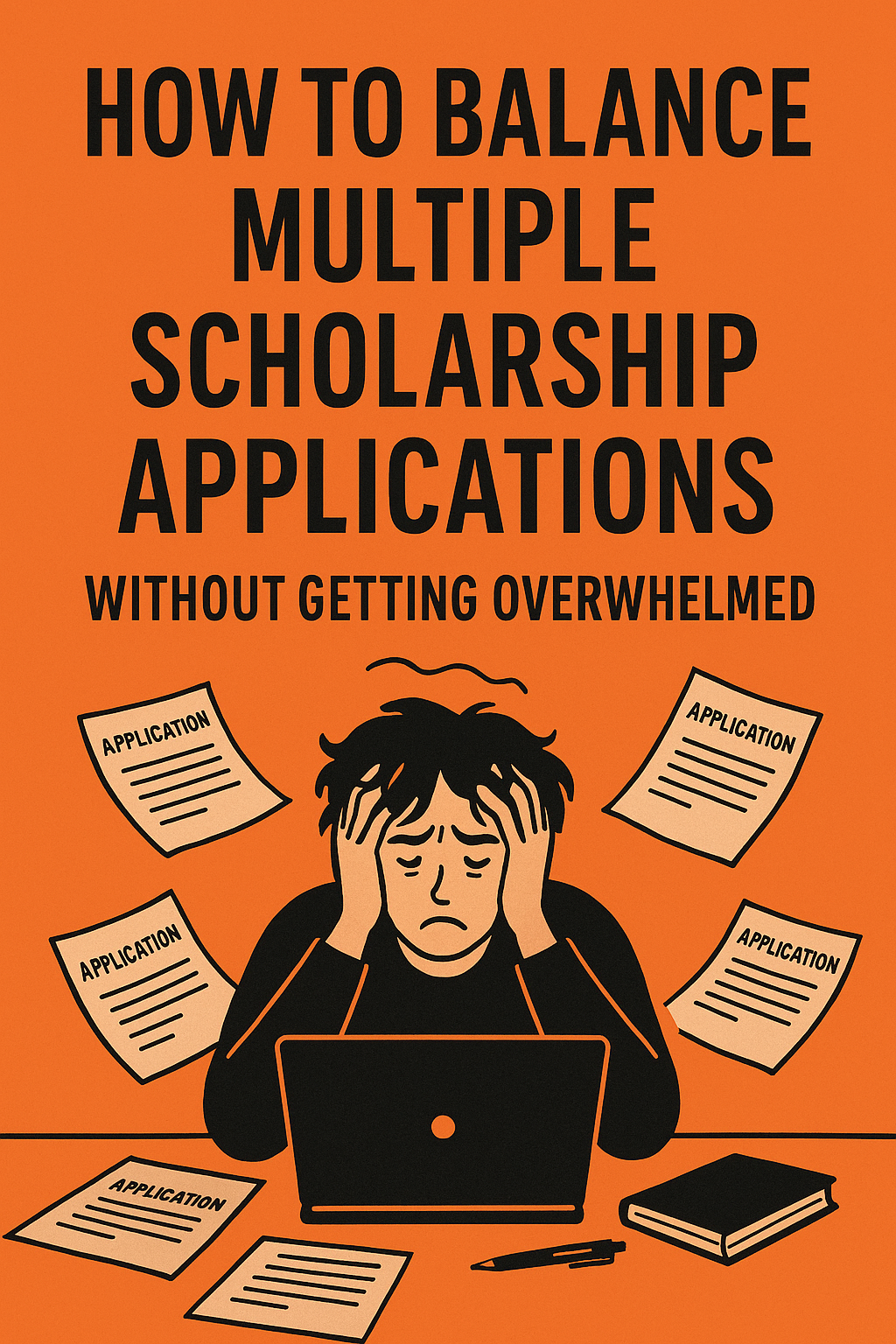
Essential Guide to Studying Abroad: All You Need to Know

Studying abroad is more than just getting a degree in a different country; it's an opportunity to change your life. From acquiring foreign academic exposure to developing personally and professionally, the decision to study abroad necessitates careful consideration and planning.
This guide covers the most frequently asked concerns regarding studying abroad, allowing you to better understand the process, plan successfully, and avoid costly mistakes. This complete overview will steer you in the correct direction, whether you're just getting started with the concept or are ready to put it into action.
Why should you study abroad?
Studying abroad offers far more than classroom education. It is a comprehensive experience that includes education, cultural engagement, personal development, and career advancement. Here are some key benefits:
- Cultural Exposure: Living in a different nation exposes you to new cultures, lifestyles, and perspectives. It broadens your perspective and increases your adaptability.
- Access to Quality Education: Study in institutions with world-class facilities, specialized programs, and internationally recognized faculty.
- Language and Communication Skills: Immersion in a foreign linguistic context, even in English, improves communication skills and cultural intelligence.
- Career prospects: International experience and exposure can enhance your career prospects. Employers value applicants who have demonstrated their ability to thrive in various global situations.
For example, a Nigerian student studying Information Technology in Canada learns more than simply coding; she also obtains insight into global tech marketplaces, internships in a multicultural workplace, and maybe a road to employment after graduation.
How to Select the Right Country and University
Choosing where and what to study is one of the most important decisions you will make. Consider your job ambitions and the finest schooling options in relevant nations.
- Can I afford living and tuition there?
- Do I speak the language, or can I rapidly learn it?
- Will I be at ease with the country's culture, climate, and social systems?
Tip: To compare universities in your topic of interest, use systems such as QS World Rankings or Times Higher Education. Join student communities such as The Student Room and Reddit to hear from current overseas students.
What Are the Common Admission Requirements?
Admission requirements vary by program, but here’s a general checklist:
| Required Document | Purpose |
| Application Form | Your official entry point to the university |
| Academic Transcripts | Proof of your previous education |
| Language Proficiency Test (TOEFL, IELTS) | Required for non-native English speakers |
| Standardized Tests (SAT, GRE, GMAT) | Depending on the country and program |
| Letters of Recommendation | From teachers, professors, or employers |
| Statement of Purpose | Personal essay explaining your academic journey and goals |
| Passport Copy | Must be valid for at least 6 months beyond your planned stay |
| Resume/CV | Showcases your academic and work background |
| Proof of Finances | Evidence that you can fund your studies/living expenses |
| Application Fee Receipt | If the university charges a non-refundable fee |
| Portfolio | Required for design, art, and creative programs |
| Health Records | Sometimes needed for a visa or campus access |
| Degree Certificates | Proof of completed education for graduate programs |
Step-by-Step Application Process
- Research Programs: Identify institutions and study programs that align with your goals.
- Check Requirements: Go through the university website or prospectus for deadlines and admission criteria.
- Gather Documents: Prepare all required materials early. Some processes, like recommendation letters, may take time.
- Apply Online: Most institutions have online portals. Upload your documents and pay the application fee.
- Apply for Scholarships: Don’t wait until you're accepted. Apply early for scholarships, fellowships, or grants.
- Visa Application: Once accepted, start your student visa application with your acceptance letter.
- Secure Accommodation: Look into dorms, rentals, or homestays. Secure your living arrangement before departure.
- Book Travel: Once your visa is approved, book your flight and arrange airport pickups if available.
- Orientation & Packing: Attend pre-departure orientations and research what to pack and expect culturally.
Popular Countries for International Students
Below is a summary of popular destinations and their unique strengths:
| Country | Highlights |
| USA | Diverse institutions, flexible curriculum, extensive research funding |
| UK | Prestigious universities like Oxford and Cambridge, 1-year master’s programs |
| Canada | High-quality education, affordable tuition, safe society |
| Germany | No tuition in public universities, strong in engineering and tech |
| Australia | Friendly immigration policies, strong research institutions |
| France | Artistic and cultural hubs, business schools with global reputations |
| Netherlands | English-taught programs, a progressive society |
| New Zealand | Strong academic standards, work-study options |
| Japan | Tech innovation, cultural heritage, and increasing English programs |
| China | Affordable tuition, unique language, and business opportunities |
Are My Grades Good Enough?
To evaluate your eligibility:
- Compare GPA Requirements: Use online GPA conversion tools to compare your results to the host country’s system.
- Standardized Test Scores: Strong test scores can compensate for lower GPAs in some cases.
- Holistic Review: Many universities consider extracurricular activities, leadership, and passion in addition to grades.
- Talk to Admissions Officers: Send an email inquiry or book a virtual consultation if unsure.
What Are the Costs Involved?
Here's a breakdown of common expenses:
- Tuition Fees: $3,000–$50,000/year depending on country and course.
- Accommodation: $300–$1,200/month depending on city.
- Food & Transport: Varies; budget at least $300/month.
- Books & Materials: $500–$1,000/year.
- Travel & Visa Fees: Depends on the country.
- Health Insurance: Often required, $300–$1,000/year.
How to Fund Your Studies
You can explore:
- Scholarships/Grants: Search government, university, and external funding options.
- Education Loans: Offered by banks and international lenders.
- Work-Study Programs: Part-time jobs are allowed in many countries for student visa holders.
- Family Support/Sponsorship: For upfront payments or living expenses.
Visas, Insurance, and Safety
- Student Visa: Apply early. Requirements include passport, acceptance letter, proof of funds, and insurance.
- Health Insurance: Usually compulsory; protects against emergencies, routine checks, and hospital visits.
- Safety Tips: Register with your country’s embassy, follow local laws, avoid unsafe areas, and keep emergency contacts.
Accommodation Options
- On-Campus Dorms: Great for meeting people and proximity to classes.
- Off-Campus Housing: More independence and sometimes more affordable.
- Homestays: Best for language immersion and cultural exposure.
Working While Studying & After Graduation
- During Studies: Most countries allow 10–20 hours/week for part-time jobs.
- After Studies: Countries like Canada, Australia, and Germany offer post-study work visas.
- Permanent Residency: Possible in some countries based on job offers, skills, or long-term visas
- .
Real Challenges You May Face, and How to Overcome Them
| Challenge | Solution |
| Culture Shock | Join local groups and stay open-minded |
| Language Barriers | Take language classes or use language apps |
| Homesickness | Stay in touch with loved ones and join support groups |
| Financial Pressure | Budget wisely and look for part-time work |
| Academic Adjustment | Attend workshops and use university resources |
| Health Concerns | Have insurance and know local emergency contacts |
Final Tips for Making the Most of It
- Engage: Join student associations, events, and clubs.
- Explore: Visit local attractions, cities, and landmarks.
- Build a Network: Your international peers could become lifelong friends or future colleagues.
- Stay Open: Embrace the experience; every challenge is a chance to grow.
Final Thoughts
Studying abroad is an empowering decision that will shape your personal story for years to come. With the right mindset, proper planning, and informed action, you can transform this dream into reality.
Your future is global; take the first step today.
You may also like
0 Comments
Leave a Reply
Subscribe Today!
Subscribe to our weekly Newsletter and receive updates via email.
Scholarships by Category
- Fully Funded (79)
- Undergraduate (197)
- Masters (146)
- PhD (56)
- Bachelors (15)
- Entrepreneurs (24)
- Tech (9)
- postgraduate (39)
- Training (43)
- Grants (25)
- Fellowship (28)
- Postdoctoral (8)
- Women (14)
- MBA (5)
- Health (16)
- Medicine (13)
- Nursing (7)
- Partial funding (78)
- Contests (11)
- Leadership (4)
- College School (4)
- STEM (2)
- Internship (25)
- Law (3)
Scholarship Awarding Countries
- United Arab Emirates (1)
- Canada (111)
- South Africa (14)
- Nigeria (42)
- Ghana (7)
- United States (53)
- United Kingdom (125)
- Australia (29)
- Kenya (3)
- Azerbaijan (1)
- Germany (18)
- Austria (2)
- Thailand (2)
- Taiwan (1)
- Malaysia (1)
- Saudi Arabia (1)
- France (2)
- Netherlands (6)
- Ethiopia (1)
- Bangladesh (1)
- New Zealand (5)
- Tanzania (1)
- Italy (2)
- Indonesia (1)
- Brazil (1)
- Singapore (2)
- Belgium (1)
- Ireland (2)
- Rwanda (1)
- Japan (5)
Eligible Regions
Eligible Countries
- Canada (67)
- Nigeria (55)
- United States (54)
- United Kingdom (53)
- South Africa (46)
- Ghana (45)
- Australia (45)
- Algeria (43)
- Angola (43)
- Benin (43)
- Botswana (43)
- Burkina Faso (43)
- Burundi (43)
- Cabo Verde (43)
- Cameroon (43)
- Central African Republic (43)
- Chad (43)
- Comoros (43)
- Democratic Republic of the Congo (43)
- Republic of the Congo (43)
- Cote d'Ivoire (43)
- Djibouti (43)
- Egypt (43)
- Equatorial Guinea (43)
- Eritrea (43)
- Eswatini (43)
- Ethiopia (43)
- Gabon (43)
- Gambia (43)
- Guinea (43)
Scholarships by School
- City University Canada (1)
- Clark University (1)
- Eastern Michigan University (1)
- Southern Cross University (1)
- UBC Sauder School of Business (1)
- Wigwe University (1)
- Aberystwyth University (3)
- Khazar University (1)
- University of Canberra (UC) (1)
- Wrexham University (1)
- London School of Hygiene & Tropical Medicine (LSHTM) (1)
- King's College London (3)
- Ruhr-University (1)
- Justus Liebig University Giessen (JLU) (2)
- Medical University of Graz (1)
- Chulabhorn Graduate Institute (1)
- Kaohsiung Medical University (1)
- University of Washington (2)
- Washington University School of Law (1)
- University of Oxford (5)
- Flinders University (2)
- American University (1)
- University of South Wales (1)
- St Mary’s University, Twickenham (1)
- University of York (3)
- University of Wollongong (1)
- University of Otago (2)
- Bangor University (3)
- Western Sydney University (UWS) (1)
- Murdoch University (1)
Scholarships by Sponsors
- Center for Strategy and Cultural Diplomacy (CSCD) (1)
- City University Canada (1)
- Alberta Student Aid (3)
- Canon Collins Trust (2)
- NBA Africa (1)
- Digital Jewels Africa (1)
- Metis Nation of Alberta (1)
- Clark University (1)
- Said Foundation (1)
- Eastern Michigan University (1)
- Lafarge Africa Plc (1)
- Whitley Fund for Nature (WFN) (1)
- British Council (2)
- EU-LAC Digital Accelerator (1)
- Chevening (3)
- University of Sheffield (1)
- Southern Cross University (1)
- African Women in Digital Health (AWiDH) (1)
- UBC Sauder School of Business (1)
- Wigwe University (1)
- Young Professionals in Foreign Policy (YPFP) (1)
- Greater Sum Foundation (1)
- Community Foundation Wales (1)
- Khazar University (1)
- Female Scholars Foundation (FSF) (1)
- East African Community (EAC) (1)
- Health Officers Council Of BC (1)
- Pacific Salmon Foundation (PSF) (1)
- Odenza Vacations (1)
- University of Canberra (UC) (1)
Latest Top Scholarship Tips

Smart Ways to Study Abroad on a Budget, Even with Just a Partial Scholarship
Studying abroad can be expensive, particularly on...

How Can You Create a Powerful Resume as a Student Without Work Experience?
This guide teaches students how to create an impre...

Top 10 Most Affordable Universities in Canada for International Students
Canada is a popular destination for international...
.png)
25 Proven Study Techniques for Academic Success in 2025
This detailed blog post explores 25 powerful study...

Mastering Student Life: 10 Time-Saving Tools and Techniques That Actually Work
Managing student life can be overwhelming, but it...

Essential Guide to Studying Abroad: All You Need to Know
Studying abroad is a life-changing opportunity tha...
Advertising
The Plus Catalog: the all-you-can-listen catalog including thousands of audiobooks, podcasts, and originals
Jurassic World Rebirth Quetzalcoatlus Air Dinosaur Pullover Hoodie
Jurassic World Rebirth Velociraptor Covert Mission
Amazon Essentials Women's Active FormFlex Buttery Soft Light Support Crop Tank with Bra and Contrast Trim





